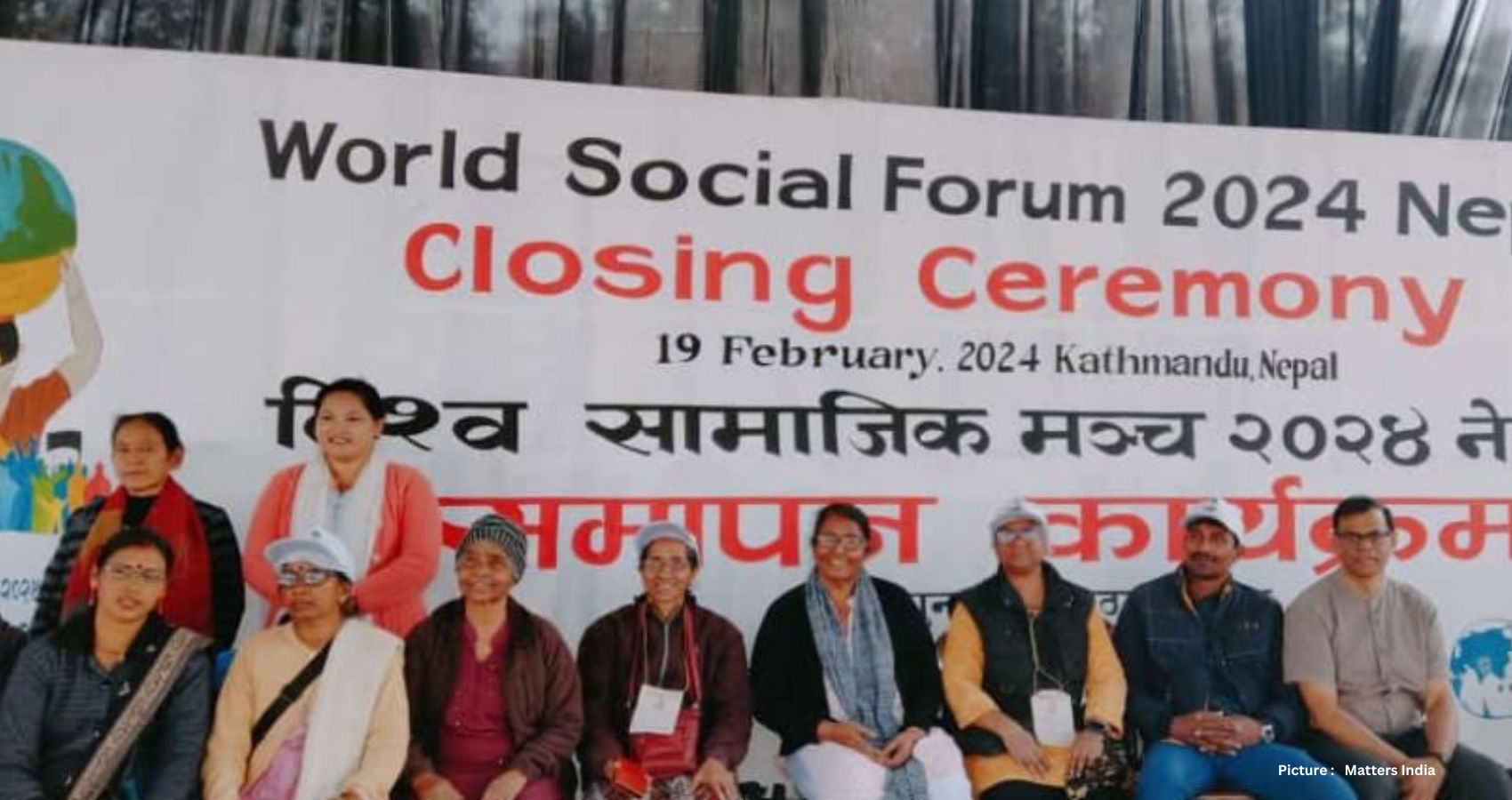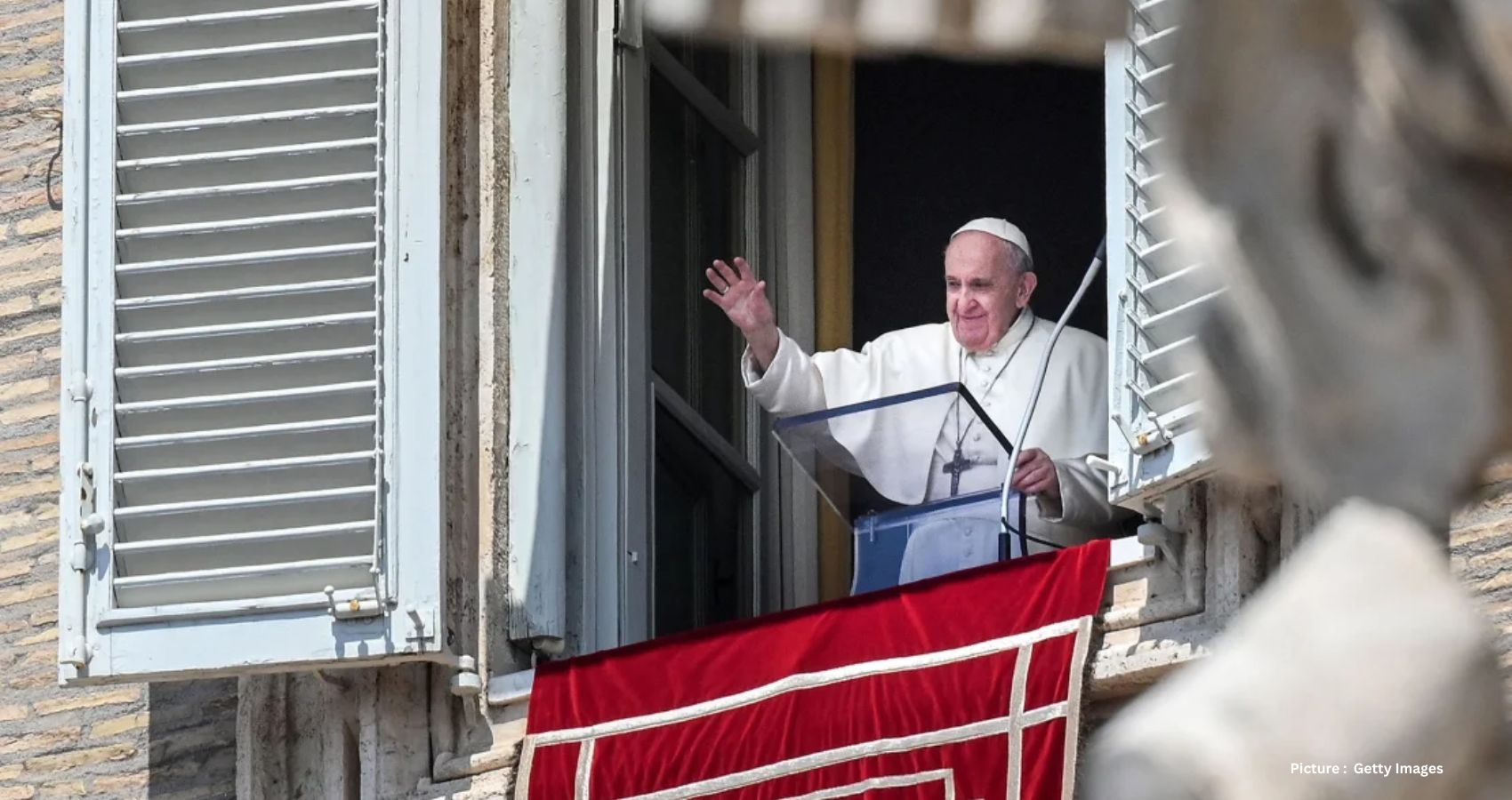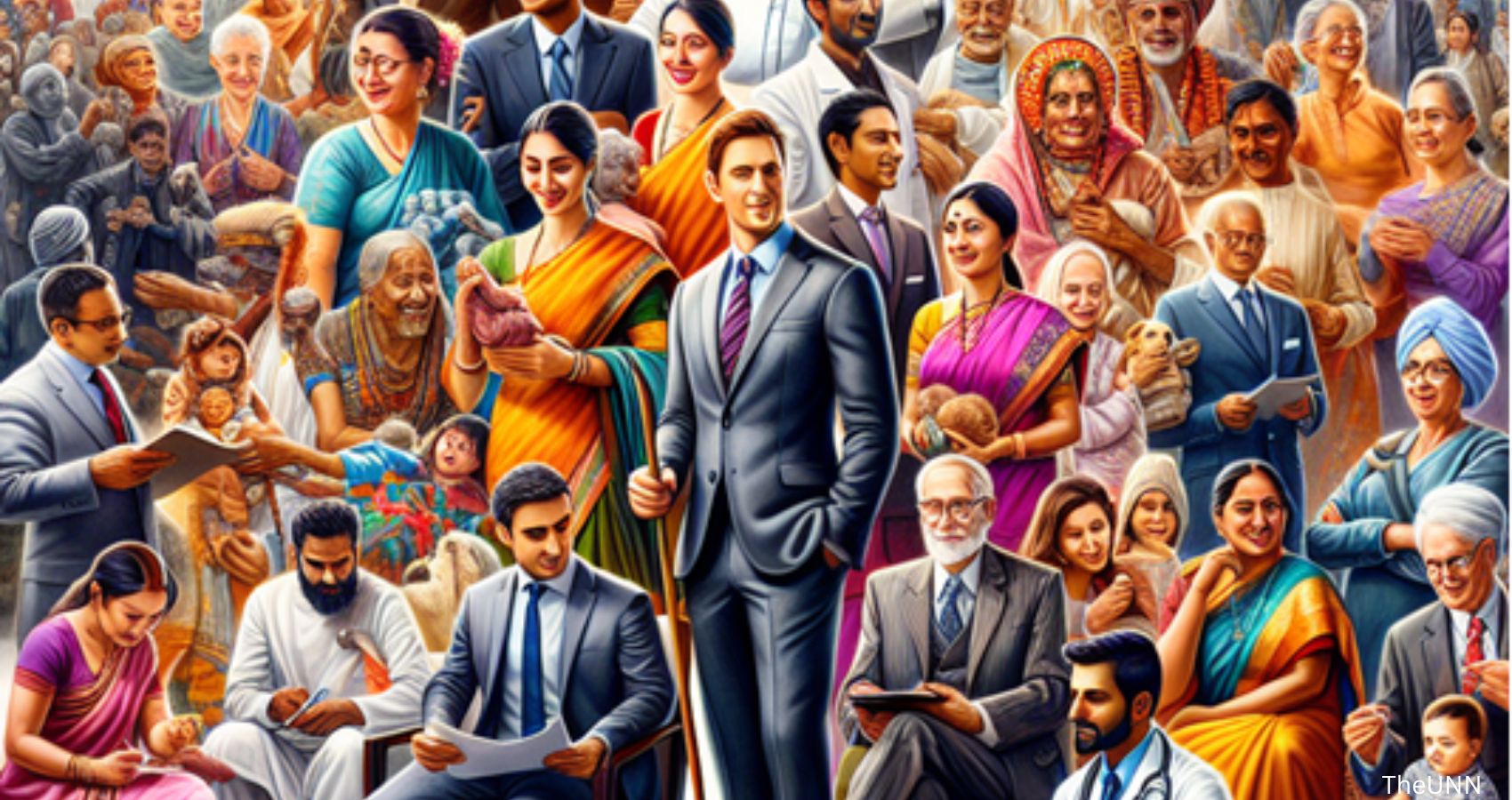Social advocates from 72 nations convened at the five-day World Social Forum (WSF) conference, which concluded on February 19 in Kathmandu, issuing a plea for the establishment of a world devoid of warfare.
The event, bearing the motto ‘Another World is Possible,’ kicked off on February 15 with a spirited rally involving 20,000 participants who paraded through the streets of Nepal’s capital, pressing for the liberation of Palestine, the eradication of slavery, casteism, fundamentalism, human trafficking, the empowerment of women, Dalits, and all marginalized groups.
A total of 252 seminars, workshops, and related sessions were organized by diverse human rights and social advocacy bodies from across the globe, tackling an array of subjects including climate justice, discrimination, secure migration, and the cessation of trafficking.
Approximately 9,000 individuals engaged in smaller group discussions, dissecting and reflecting on contemporary socio-political landscapes in various regions worldwide, and articulating statements advocating for unity, solidarity, and the revitalization of democratic values.
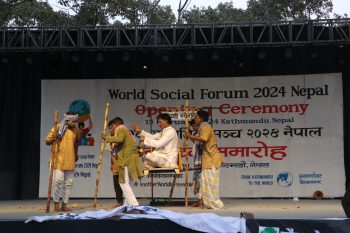
Indian representatives from numerous social and Christian organizations made a significant presence, with a notable turnout from Christian denominations, including Catholics and members of the World Council of Churches, who hosted seminars and workshops.
Among these, 60 members of the Forum of Religious for Justice and Peace from India, along with their 70 associates, led sessions focusing on themes such as environmental conservation, the protection of minority rights to foster an inclusive society, and ensuring safe and dignified migration.
During discussions on environmental stewardship, attendees deliberated on the degradation of natural habitats and ecosystems, water pollution, and the unsustainable exploitation of natural resources, advocating for a transition away from fossil fuels toward clean energy to sustain the web of life.
Calls were made for South Asian governments, particularly India and Nepal, to take decisive measures towards phasing out fossil fuels and transitioning to renewable energy sources. Additionally, developed nations were urged to compensate South Asian countries for the financial losses incurred during this transition, ensuring sustainable livelihoods for all, especially the most impoverished segments of society in the region.
Forum members and their collaborators listened attentively to accounts of persecution faced by minorities, particularly Christians, in India and Pakistan. Renowned Pakistani human rights activist Saeda Diep recounted various atrocities inflicted upon Christians, Hindus, Ahmediyas, and Shias in Pakistan, while Jesuit Father Bosco Xavier from India shed light on systemic discrimination based on ancestry and occupation worldwide.
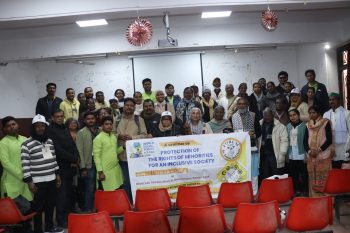
The assembly condemned the prevailing atmosphere of xenophobia, exclusion, and violence targeting minority communities and those on the fringes of society, pledging to champion religious, cultural, ethnic, and linguistic diversity, which they regarded as integral to the region’s identity and deserving of respect and promotion.
In a joint statement, the forum demanded that South Asian governments, notably India, Pakistan, Bangladesh, and Sri Lanka, halt discrimination and violence against minorities and vulnerable groups, and instead, celebrate their distinctive cultural and religious heritage.
On the topic of safe and dignified migration, forum members affirmed the reality of extensive internal and international migration within South Asia driven by economic aspirations and conflict, emphasizing the need for robust legal protections for migrant workers and measures to shield them from discrimination and indignity.
Montfort Brother Varghese Theckanath, a forum participant, orchestrated a three-day International Tribunal on Evictions, wherein testimonies regarding forced displacement were presented. A panel of esteemed human rights activists from various continents rendered a verdict in favor of the rehabilitation of all displaced communities.
Forum national convener Presentation Sister Dorothy Fernandez, along with Congregation of Jesus Sister Ancy, Father Xavier, and Father Anand from the Indian Missionaries of Society, orchestrated various initiatives throughout the five-day event.
The program also featured a diverse array of cultural performances, with Bhrikuti Mandap, the event venue, resounding with Nepali melodies and dances, as well as musical renditions in various other Asian, African, South American, and European languages.
Each evening, Prerna Kala Manch, the theatrical arm of Vishwa Jyoti Communications in Varanasi, staged professional dramas addressing issues pertinent to farmers and minorities, captivating audiences with street plays that elucidated environmental concerns, discrimination, and communal strife.

